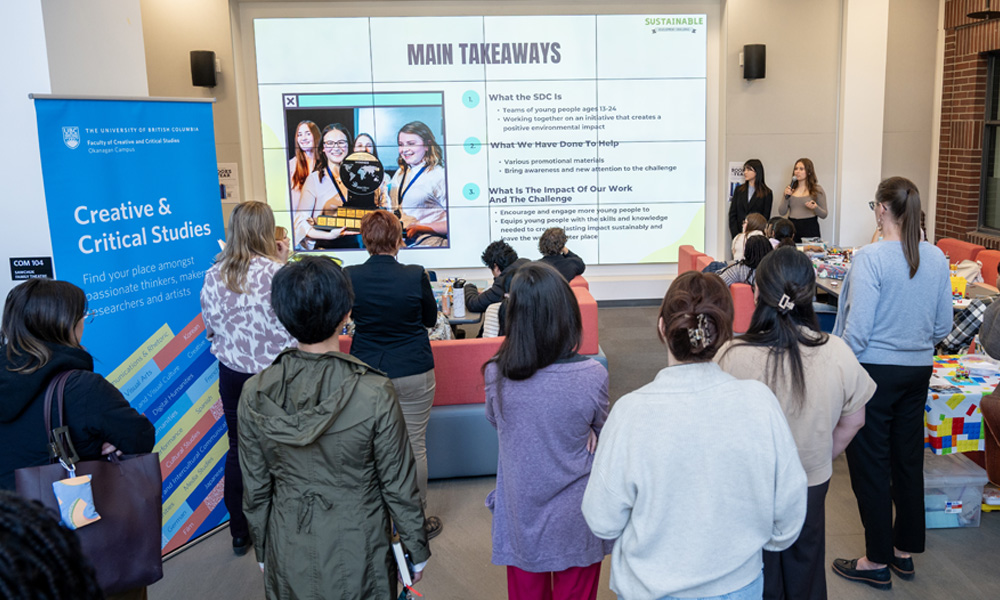Experiential learning is an important part of the educational experience here at UBC Okanagan. It involves direct real-world experience and focused reflection and has been shown to increase student engagement in their learning, applying theoretical knowledge to practical scenarios.
But how do we know it is working and that students are benefiting from their experiential learning projects? With funding from the Scholarship of Teaching and Learning (SOTL) program at UBC, professors Sherry Breshears and Jordan Stouck are conducting a study to answer that question. The study investigates student perspectives about their learning in community-engaged experiential learning projects in two Communications and Rhetoric (CORH) courses.
SOTL provides faculty with funding to investigate their own teaching practices in ways that extend beyond simple course evaluations. This initiative fosters research that contributes to broader pedagogical discussions and improvements.
“As part of this program, Dr. Stouck and I have been exploring experiential learning, a pedagogical approach that integrates real-world experiences into academic curricula, encouraging students to actively reflect on their learning process,” says Breshears.
In CORH 304, Persuasive Rhetoric, Public Speaking, and Advocacy, students engage in advocacy projects aimed at implementing concrete policy changes within the UBC Okanagan community. These projects require students to navigate institutional structures, identify key decision-makers, and mobilize support through petitions, letters, and public engagement. Similarly, in CORH 499, the capstone course for the Communications and Rhetoric certificate, students collaborate with community organizations or academic professionals to develop communication strategies and programs, reinforcing the connection between coursework and real-world application.
A significant component of experiential learning is reflection, which enables students to evaluate the effectiveness of their actions and develop problem-solving skills. Through structured group discussions, class dialogues, and written reflections, students assess their progress, identify challenges, and strategize solutions.
“By surveying students at the end of the course and conducting focus groups, we want to see how experiential learning fosters confidence in students’ ability to drive meaningful change in their communities.”
As part of our SOTL-funded research, Stouck and Breshears are working with JungAh Lee, a PhD student in education who assists in refining their methodologies, troubleshooting challenges, and connecting back to a larger group of researchers working on similar projects.
“There’s some overlap between what other people are researching and our project, so we can be inspired and learn from each other, and refine our pedagogical approaches,” notes Breshears.
Beyond this specific study, Breshears says that this research contributes to discussions about the role of humanities education in developing critical, creative, and socially engaged thinkers. “I think one of the ways that we can build relevance into our programs is by highlighting these kinds of learning activities.”
This is a unique way to find out to find out how students feel about this kind of learning and to see if it is particularly valuable to them.
“We want to find out what our students get out of these projects and make sure the ways we are teaching really does help them develop the confidence, knowledge and leadership skills .”
By integrating experiential learning into communication studies, Breshears says they hope to highlight its potential for enriching curricula, enhancing student agency, and reinforcing the humanities’ essential role in addressing societal challenges.
